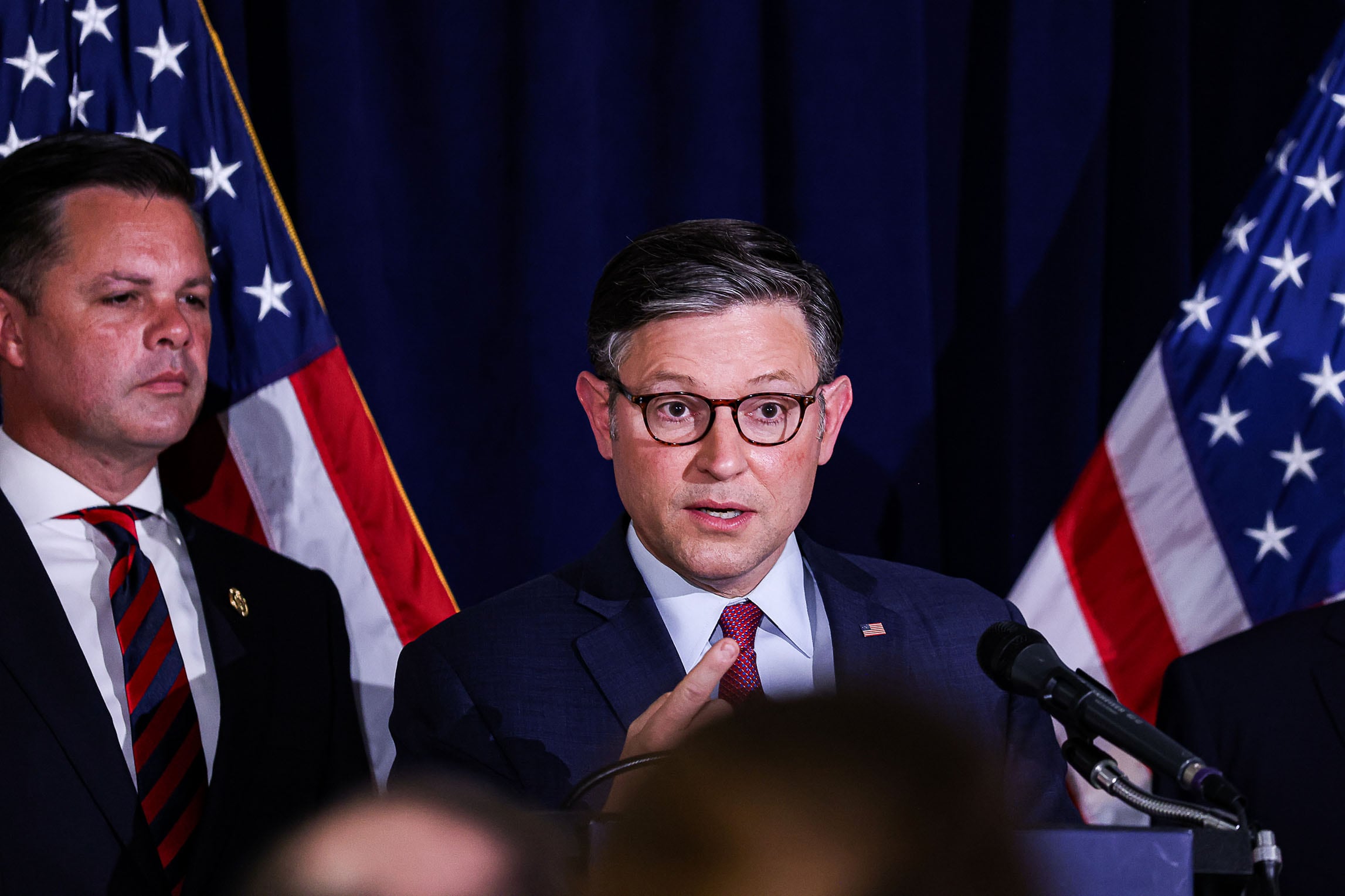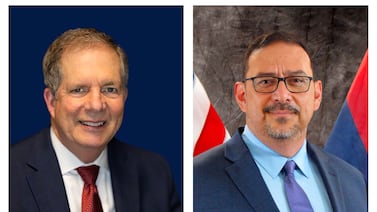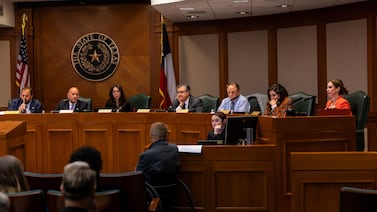Votebeat is a nonprofit news organization reporting on voting access and election administration across the U.S.
This news analysis was originally distributed in Votebeat’s free weekly newsletter. Sign up to get future editions, including the latest reporting from Votebeat bureaus and curated news from other publications, delivered to your inbox every Saturday.
Everyone’s talking about noncitizen voting as if it’s a big thing. Some prominent public officials will lead you to believe that there are such gaping holes in voter registration systems that they enable large numbers of noncitizens to vote and swing the results of elections, and that the issue deserves urgent attention.
“This will be one of the most important votes that members of this chamber will ever take in their entire careers,” House Speaker Mike Johnson said as he advocated for passage of the SAVE Act in Congress. “Should Americans and Americans alone determine the outcome of American elections? Or should we allow foreigners and illegal aliens to decide who sits in the White House and in the people’s House and in the Senate?”
These seem like good questions. But what about the tacit assumptions behind them? Are noncitizens actually casting ballots and deciding elections?
Researchers and election officials call the incidence of noncitizen voting “vanishingly rare” or “almost non-existent.” But those phrases can feel vague in the face of the political rhetoric that’s driving accelerating efforts to tighten voter registration.
By the numbers, there’s no evidence that suggests that noncitizens voting in U.S. elections is a widespread problem, or even a medium-sized one. Election officials, audits, and years of academic research all tell the same story: It’s rare, and understandably so, because risks are so high compared with the reward. Noncitizens who vote illegally are subject to criminal penalties, including prison time and loss of their residency status.
Lots of people have looked for noncitizens who’d be willing to take this risk for the sake of a vote. So far, they’ve found very few.
Take Ohio. The secretary of state’s office there last year flagged 621 noncitizens who might have voted — over a 10-year span. This was in a state with more than 8 million registered voters.
In Iowa, a 2024 review identified 35 noncitizens who had voted last year and 277 who were registered — out of nearly 2.3 million voters. These numbers were initially much higher based on incomplete state data, but once officials cross-checked them with federal immigration records, the numbers dropped sharply.
Georgia in 2024 found 20 noncitizens on its rolls after a statewide audit of more than 8 million voters. Nine had voted. All were referred for removal from the voter rolls and possible prosecution.
A recent review in Michigan found 15 potential noncitizen voters in last year’s presidential election, out of more than 5.7 million ballots cast.
So the numbers are small. But many Republicans say that even one vote cast by a noncitizen is too many. That’s why we’re still seeing legislation like the SAVE Act, which would require documentary proof of citizenship to register to vote — such as a certified copy of a birth certificate, a U.S. passport, or naturalization documents — rather than just an attestation under oath. For many Americans, such as those born in rural or non-hospital settings, these documents can be hard to find or expensive to replace.
President Donald Trump’s new executive order on elections also calls for requiring documentary proof of citizenship, though it has some important differences from the SAVE Act.
Trump, who lost the popular vote in 2016 and 2020, has long claimed that voting by noncitizens sways election results. He and allies have based many of their assertions on a 2014 analysis by political scientists Jesse Richman and colleagues that claimed 6.4% of ballots were cast by noncitizens in the 2008 election, when Barack Obama swamped John McCain by more than 9 million votes. That analysis has been widely denounced as a flawed interpretation of earlier survey results. The researchers behind the original survey, the Cooperative Congressional Election Study have since said their data was never meant to support those conclusions.
That didn’t stop Kansas from using the Richman study as the backbone of its defense in a 2018 federal trial over the state’s proof-of-citizenship law. It didn’t go well. The judge, appointed by George W. Bush, called Richman’s testimony “confusing, inconsistent and methodologically flawed” and tossed it aside.
Meanwhile, the court found that the law had stopped more than 31,000 eligible Kansans from registering — many of them young voters — while identifying just 39 noncitizens who had registered over two decades. Most of those registrations were due not to fraud but administrative errors. The court struck down the law.
The SAVE Act would revive this approach at the federal level, and then leave big parts of the implementation to the states. They’d decide what to do if, say, the name on a voter’s ID doesn’t match his or her birth name. Some states might go all in with strict requirements, while others take a lighter touch. That leaves infinite room for inconsistency, confusion and disenfranchisement — all to solve a problem that (see above) is pretty small.
Two former Republican secretaries of state, John Merrill (Alabama) and Trey Grayson (Kentucky), recently wrote an op-ed for Bloomberg in which they say Trump’s executive order could create unintended consequences, citing Kansas’ experience with impeding eligible voters as an example.
Those interested in “getting the citizenship issue right can look to the states for promising pathways forward,” they say, such as proposed legislation that would allow election officials to more easily check voters’ citizenship status.
But if the idea is to seek a solution based on data rather than rhetoric, the horse may have left the barn.
Fortunately, the two officials wrote, noncitizen voting is historically rare. “Yet those in charge of administering elections must contend with the fact that a critical mass of the voting public harbors serious concerns about election integrity in general, and noncitizen voting in particular.”
Jessica Huseman is Votebeat’s editorial director and is based in Dallas. Contact Jessica at jhuseman@votebeat.org.






